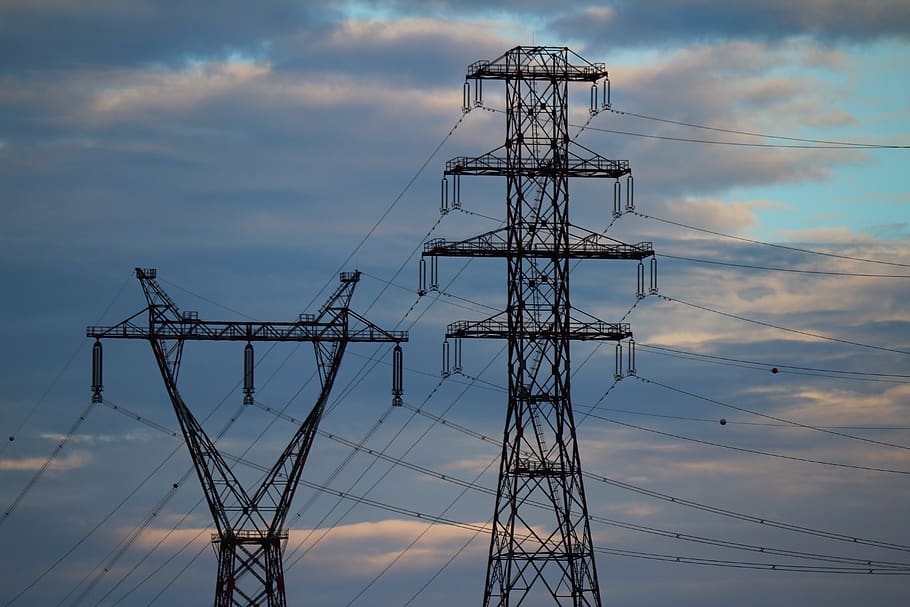Southerners who can’t afford bills could have power disconnected in the heat of summer
5 min read
By Sascha Medina, July 31, 2020
As the South sees record-breaking heat waves and rising COVID-19 cases, and as Republicans in Congress move to end unemployment benefits, Southern states and utilities are ending moratoriums on utility disconnections, putting hundreds of thousands of people at risk of losing power if they can’t pay their bills on time.
Many utilities and some states took some form of action in March, when the coronavirus started spreading throughout the U.S., allowing customers to keep their power and water on despite missing monthly payments. As the pandemic has dragged on, some have extended moratoriums under increasing pressure from activists and residents.
The pandemic has caused intense financial strain for people all over the country, making it hard for some to afford rent and utility bills. In Florida, over 600,000 electric customers are behind on their bills. At the end of June, nearly 100,000 customers were two or three months behind on payments to Georgia Power and 130,000 Duke Energy customers in North Carolina were 60 days behind.
“The utilities’ action will result in making life appreciably worse for a large section of customers,” said Daniel Tait, research and communication manager for Energy and Policy Institute, which has been tracking the shut-off policies. “Low to moderate income and communities of color are going to be disproportionately burdened by this.”
High electricity rates were a growing problem in the South long before the pandemic. Research shows Southeastern states spend the most money on electricity, despite proximity to cheap power sources. Throughout Appalachia, many utility customers say their monthly power bills are hundreds of dollars. In Mississippi, electric cooperative members spend more than 42% of their income on electricity. In North Carolina, about 40% of households experienced unaffordable energy bills before the pandemic, according to the nonprofit Appalachian Voices.
The pandemic magnified that problem and increased how many people were being affected by disconnection policies, said Rory McIlmoil, an energy analyst at Appalachian Voices. He recounted a conversation with a single mom of five in North Carolina who has racked up a $1,600 Duke Energy bill. To show her commitment, she has paid small amounts each week.
“A lot of people struggled with their utilities beforehand,” he said. “It’s a big problem that doesn’t only require an immediate solution, but a long-term solution.”
Most moratoriums on shut-offs were put in place at the beginning of the pandemic in an effort to help people stay at home and prevent the spread of COVID-19 as economies shut down. Tait said it was the obvious thing to do. “We wanted people to stay home and they can’t stay home if they don’t have electricity or basic services,” said Tait.
But that guarantee won’t last much longer, he said. Already, some utilities are starting disconnections, with a second wave expected from late August to early September. The Energy and Policy Institute updates this information regularly. Here’s what state-imposed moratoriums look like in the South:
West Virginia, Florida, and Alabama: No statewide suspensions on shut-offs during the pandemic existed in these states, leaving it up to utilities or electric cooperatives.
South Carolina, Georgia, Mississippi, Louisiana, and Texas: All of these states had moratoriums on shut-offs that have expired, leaving decisions up to individual utilities or electric cooperatives.
Virginia, Tennessee, North Carolina, and Arkansas: These states’ moratoriums on disconnections are set to expire in the coming weeks. Tennessee’s ends August 29, when its public health emergency declaration expires; Virginia’s ends August 31; Arkansas’s ends August 3; North Carolina’s was recently extended to September 1.
Kentucky: A moratorium from state regulators prohibits disconnections until further notice. The state’s major utility, LG&E and Kentucky Utilities, states that “until at least September 1, 2020, we have suspended disconnects for our residential and business customers who may have difficulty paying their bill. We’ve also waived new late fees incurred during this time.”
Some of the South’s biggest utilities have lost hundreds of millions of dollars during the pandemic. Tait and other advocates are concerned they’ll hike rates for customers to cover these losses. “There is no risk on the part of the company that they’re going to just magically start losing money,” Tait said. “We argue that they should share some of the burden, not just push it all off on the consumer.”
Potential disconnections could come just as Americans lose another program designed to keep them afloat during the pandemic: unemployment benefits. Since March 27, qualified people have received an extra $600 a week for unemployment. But the CARES Act ended Friday, and Congress has yet to reach a deal for an extension or new program.
Meanwhile, COVID-19 cases are increasing across the South and other parts of the country; Florida, Georgia, and Texas are all still hotspots. Some state and city leaders are rolling back reopening plans to prevent the spread of the virus.
Tait said he worries folks will now face financial pressure to get back to work, which means putting their health at risk. People may leave their homes to perform odd jobs or simply get into a cool building if they don’t have or can’t afford air conditioning. That could potentially cause serious health consequences — especially during the dog days of summer, when high temperatures have been stretching across the eastern U.S in recent weeks.
“They’re forcing people out of their homes which is the safest place they can be. Anything that forces them out of their homes is just unnecessarily adding risk,” he said. “It’s just heartless.”
Many utilities have publicly stated they are working with customers on payment plans or have not resumed disconnections. Southerly contacted several major companies to find out their plans. For more information about your specific utility, check their website or visit the National Association of Regulatory Utility Commissioners.
Florida Power & Light, which planned to end its moratorium, faced backlash and reversed its decision. The Tennessee Valley Authority states it is working with local utilities to offer “support and flexibility.” A spokesperson for Georgia Power, which ended its moratorium July 15, said the company has worked “aggressively to inform customers about their payment options for those who accumulated past-due balances during the COVID-19 pandemic.”
Entergy, which has customers in Louisiana, Arkansas, Mississippi, and Texas, said its local utility companies have “voluntarily suspended all service disconnections since mid-March with no announced plans to resume normal collections at this time” and are providing 12-month deferred payment arrangements. A Duke Energy spokesperson said they are reviewing North Carolina regulators’ recent decision to extend the moratorium and will communicate their timeline soon.
The situation has bolstered calls for more systemic solutions to address mounting bills, unaffordable electricity, and monopoly utilities. McIlmoil said Appalachian Voices is pushing for policies at the state level that would require utilities to charge no more than a certain percentage of what a customer’s bill usually is for debt repayment, and to allow customers who keep current with 12 months of bills to erase debt accrued during the moratorium.
They are also advocating to break up monopoly utilities and giving people more control over their energy-related decisions. “Energy democracy is central to achieving that just, equitable and clean energy future that benefits everybody and not just shareholders,” McIlmoil said.
Sascha Medina is a senior at the University of North Carolina Chapel Hill, where she studies environmental science and journalism.





